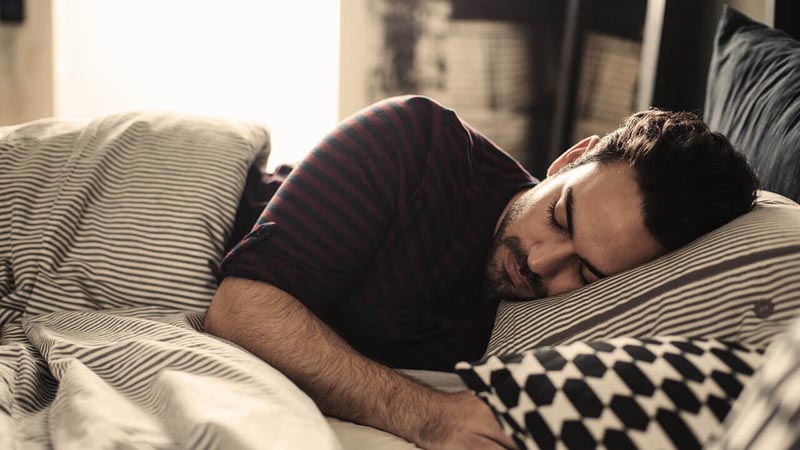Overview
Stroke-Induced Sleep Disorders
If you've had a stroke, it's likely you'll have some problems sleeping. If your sleep difficulties continue over a period of time, you may have a stroke-induced sleep disorder.
Sleep-disordered breathing
Two-thirds of stroke survivors have a condition known as sleep-disordered breathing (SDB), which is characterized by abnormal breathing patterns that interrupt your sleep during the night. As a result of SDB, you may be very sleepy during the day and have more difficulty concentrating or solving problems. SDB can be particularly dangerous for stroke survivors, as it can increase blood pressure and blood clotting, as well as put more strain on your heart.
Types of sleep disorders
Obstructive sleep apnea is the most common type of SDB in stroke survivors, which causes you to stop breathing for 10 or more seconds, many times during the night.
Approximately 20 to 40 percent of stroke survivors experience sleep-wake cycle disorders, also known as “circadian disturbances,” which means that your sleep schedule is no longer determined by day and night.
Stroke survivors also frequently suffer from insomnia, which causes you to have trouble falling asleep or staying asleep throughout the night.
Signs and symptoms
SDBs result in a number of symptoms, some that appear at night, others appear during the day.
Night symptoms may include:
- Loud snoring
- Waking up during the night and gasping for breath
- Shortness of breath
- Increase in sweating
- Insomnia
Day symptoms may include:
- Excessive sleepiness
- Headaches
- Fatigue
- Irritability
- Memory problems
- Depression
Treatment
Sleep disorders following stroke may be treated in a variety of ways, including:
- Losing weight
- Avoiding alcohol
- Avoiding sleep medicines
- Use of a specially designed dental appliance design to open airways during the night
- Avoiding sleeping on your back
- Using a continuous positive airway pressure (CPAP) machine to open your airways



